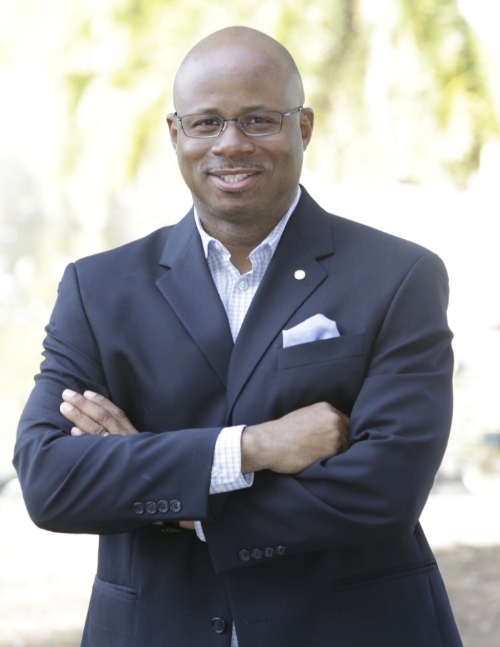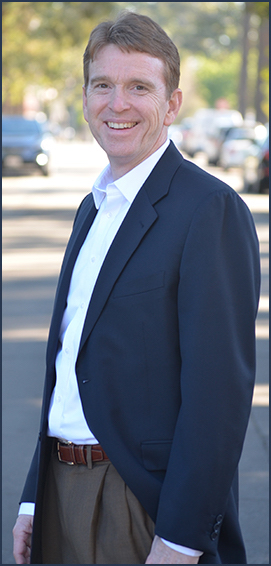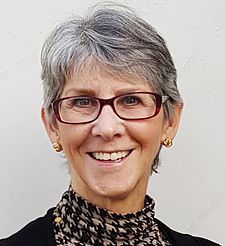In anticipation of the Citywide Forum for all Long Beach City Council candidates this Wednesday, the Post took the time to chat with the candidates of each district with seats up for election (districts two, six and eight). In Part I of Getting to Know your candidates, Jason Ruiz talks to Eighth District candidates Councilmember Al Austin, Wesley Turnbow and Laurie Angel.
The Eighth District
The Eighth District for the city council in Long Beach sits on the periphery of the city’s core, but despite its distance from the heart of downtown, it will play a critical role in helping determine the shape of the city council’s policymaking over the next four years. Three candidates, including incumbent Councilman Al Austin, are vying for the opportunity to represent one of the most densely populated parts of the city that also holds huge stakes in future developments at Long Beach Airport, housing developments along the Los Angeles River and the fiscal decisions facing Long Beach in the face of looming budget shortfalls.
The race will pit Austin—seeking a second term on the council—against a community activist turned candidate in Laurie Angel and a Long Beach native and local aerospace chief executive officer in Wesley Turnbow. While Austin believes that he has lived up to the promises he campaigned on during his 2012 victory, both he and his competitors know the voters in the eighth district will critique and scrutinize each candidate before making an informed decision on who they’ll support during the April 12 primary.
Al Austin
Austin was elected to his current position as the Eighth’s representative on the Long Beach City Council in 2012. Since taking office, Austin has helped successfully push for a host of public safety and economic development initiatives, including the passage of an alcohol nuisance abatement ordinance and helping create the city’s first ever gun buyback event. He’s also presided over a recent uptick in economic development in the Eighth District, with the Bixby Knolls business corridor acquiring notable business additions in recent months.
 Austin said the difference this time around is that running a re-election campaign means he has the experience of actually serving as a council member, which he views as invaluable, but wouldn’t say its an outright edge against those running against him.
Austin said the difference this time around is that running a re-election campaign means he has the experience of actually serving as a council member, which he views as invaluable, but wouldn’t say its an outright edge against those running against him.
“I don’t know if it’s an advantage but it’s just what it is,” Austin said of being an incumbent. “I happen to be running for re-election; I’ve delivered on most of my promises, I’m focused on continuing to improve and the way I look at running this reelection, it’s a process that we have to go through, but I won’t be distracted from my mission of making my district the most livable district in Long Beach.”
Livability has been a big issue for Austin since he took office. He’s been a firm critic of airport policies that could result in more flights—and more noise—hovering over his constituents’ homes. He also supported the Riverwalk project that’s been the source of some controversy, particularly regarding a group of residents filing litigation against the project due to concerns about its environmental impact.
The idea that the public was not engaged in the process leading up to the council’s approval—one raised by Angel—is refuted by Austin, who characterizes the complaints as sour grapes stemming from those who opposed the process in the first place. He touted the project’s addressing the housing deficit and dearth of park space in the area (about 3.5 acres of new public park space) in affirming his support for the project.
“We’re getting a public park out of this,” Austin said. “Kids in that neighborhood that is park poor will have an opportunity to play in it. I feel very strongly about this and I take great exception. A lot of hard work went into putting that together.”
Both Turnbow and Angel believe that they are the better person to lead the Eighth when it comes to fiscal responsibility, and both have been critical of Austin’s support of the minimum wage ordinance and the sales tax ballot initiative that was approved last week.
Austin defended his stance on taxes and fiscal responsibility by noting that when he came into office, the city’s budget was in a $17 million deficit, and for the past two years, it’s had a small surplus. Moreover, he said, his district budget was pretty much nonexistent. Like many others on the council, Austin believes that the issue should be put to the voters, so they have a voice in how the city funds infrastructure and public safety investments, something he said Eighth District residents hold as high priorities.
“If there were other ways, we would’ve done it already,” Austin said. “We went through cuts and re-efficiencies and remodeling the way services are provided for several years now and it’s just a priorities discussion for the residents and city to have.”
Wesley Turnbow
Turnbow’s family has lived in the city for four generations and he’s come full circle from playing Atari video games on Orange Avenue to now raising a family, including six children of his own. He said he has several anecdotes to why he decided to make the jump into city politics, but the overriding factor was the safety of his children and the community.
“I’m starting to worry about the crime; clearly our streets are not as safe as they were,” Turnbow said.
 Crime and how to invest in fighting back against a recent spike in criminal activity in the city is an issue facing all districts. Last week, the city council voted unanimously to approve a ballot measure for the June municipal election that will allow residents to decide if a temporary raise of the sales tax is an appropriate measure to take in fighting the growing budget gap and the city’s needs pertaining to infrastructure and public safety.
Crime and how to invest in fighting back against a recent spike in criminal activity in the city is an issue facing all districts. Last week, the city council voted unanimously to approve a ballot measure for the June municipal election that will allow residents to decide if a temporary raise of the sales tax is an appropriate measure to take in fighting the growing budget gap and the city’s needs pertaining to infrastructure and public safety.
Turnbow was critical of Austin’s stance in discussions leading up to the vote, where Austin stated that it was a mistake by the people to do away with the utility tax. Fiscal responsibility is a major tenet of Turnbow’s platform, and he believes that his background as a businessman with multiple degrees from the University of Southern California in business and law make him a qualified candidate to help the council reign in spending and balance the budget.
“I come from this growing businesses, growing employees, making payrolls, cutting budgets kind of terms,” Turnbow said in an interview earlier this month. “Last week, Councilman Austin went on record saying that people made a mistake, were unwise when they decided to cut utility taxes. His idea to fund current city services is to boost taxes. I think that’s terrible. I’m an auditor and I’ve looked at that budget; there’s a lot of ways to cut millions of dollars.”
He promised to “beat the drum of fiscal responsibility” if elected to the council seat and stressed the importance of stashing excess revenue into a rainy day fund, noting that the city has to be prepared for the ups and downs of the economy and that the city can’t afford to have a “rosy picture year after year.”
A main concern for Turnbow is the lack of business development in the district, something that he said continues to cause its lag in sales tax revenue in comparison with other parts of the city. He said the recent passage of the higher minimum wage isn’t going to help matters, as Long Beach will be forced to compete with surrounding municipalities with a “brutal” cost barrier in place for local businesses.
His views align with Angel and Austin when it comes to the airport and its noise ordinance. Like Austin, Turnbow is critical of the recent proceedings regarding the airport and was forthright in his stance against the addition of an international terminal at Long Beach.
“I’ve seen what happened in Chicago and I have some worry about what will happen if we start messing around with our sound ordinance,” Turnbow said. “The FAA is a powerful force and they can come in and make things happen. I don’t want to wreck what that airport is.”
Turnbow said his network of supporters comes in part from his and his wife’s tireless dedication to their community over the past few decades. He volunteers at a school in Los Cerritos helping kids to learn how to read and work in the computer lab and has coached multiple soccer teams in the community. The interest and momentum that’s behind his campaign is fueled by some three dozen endorsements. He explained the process to this point as humbling and more work than he initially imagined it would be, but said in the end, it was just time to give back.
“I just care about this city and it’s time to be in the mix and serving the city I care about,” Turnbow said.
Laurie Angel
Like Turnbow, Angel has deep community ties to the Eighth District, having lived there since 1989. Her name is a little more recognizable than most people making their first run at an elected office, mainly because she’s spent the majority of that time as a community activist. Her initial tilt into civic engagement came after the Los Angeles riots during the ’90s when the redevelopment agency came around.
Among the chief concerns facing the district and the city at large—infrastructure needs and investments in public safety—Angels says the Eighth lacks a level of public engagement that would help its residents be better served at City Hall. She blames this both on a lack of outreach, something she aims to address with more frequent informal meet and greets with constituents—as well as partisan politics, which she believes have drowned out the voice of the people in favor of special interests. Angel is a registered independent.
 “I don’t feel as if the Eighth District is being represented to the degree that it should be represented,” Angel said. “I know voices are being silenced and it’s a frustrating situation. One of the straws that broke the camel’s back was the Riverwalk project.”
“I don’t feel as if the Eighth District is being represented to the degree that it should be represented,” Angel said. “I know voices are being silenced and it’s a frustrating situation. One of the straws that broke the camel’s back was the Riverwalk project.”
The Riverwalk development is the subject of litigation, due to a group of citizens alleging that certain aspects of the environmental impact report weren’t properly vetted or communicated to the community, a point that Austin refutes. She vows that if elected to the council seat that the “people’s business will be conducted before the people” because of her independent status.
“If you take party politics out of the equation how differently would people behave?” Angel asked. “Would they make better decisions on the city council, would they bring up different legislation? I just think that the quality of representation we have would be so much better if people were truly neutral.”
She believes that her history in the city and level of engagement will not only bring experience to the table but also a balanced historical perspective that she believes has been lacking with some of the newer faces on the council. Her work in the public and private sector and her current job as the business manager for Academic Technology at Cal State Long Beach—as well as a plethora of other budget intensive jobs—she said has prepared her to tackle the fiscal challenges facing the city.
While she doesn’t agree that raising taxes is the answer to the city’s problems, in an interview earlier this month Angel seemingly agreed with the council’s decision to approve the sales tax ballot initiative that included a citizen oversight element.
“I don’t think that taxing our way out of it is the way to do it,” Angel said. “I think that we need to run economic development, bringing in companies before we even start thinking about bringing in taxes. But if they do taxes it needs to be completely accountable. You can’t just write a free check to the city.”
These topics will continued to be discussed at events like the citywide candidate forum this Wednesday at the Main Library Auditorium and the Eighth District Forum hosted by the Los Cerritos Neighborhood Association at the Petroleum Club March 9.

